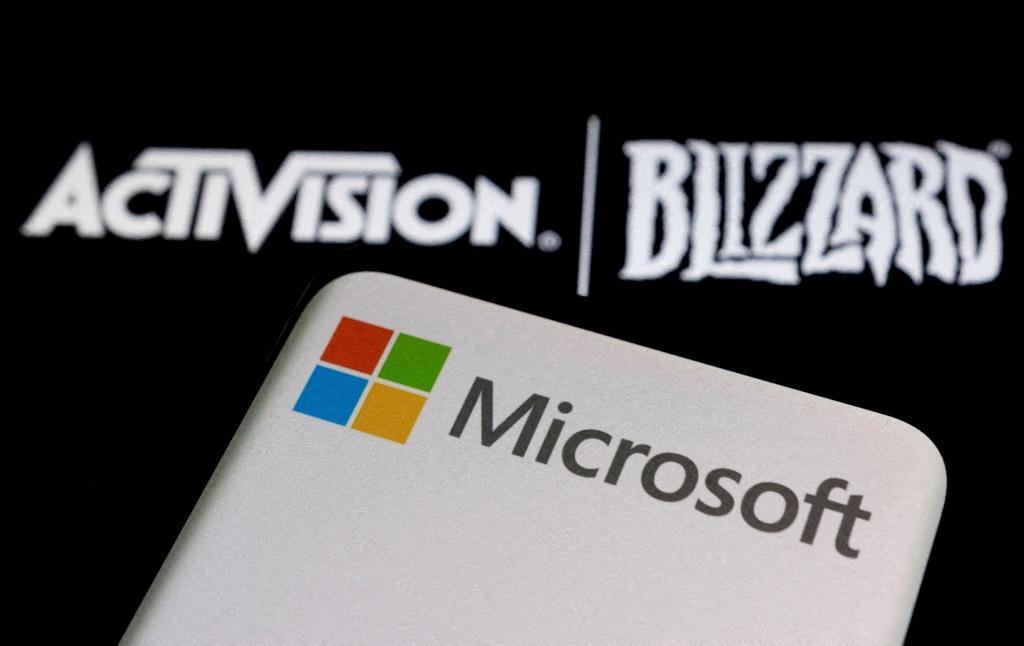Xbox parent Microsoft closed its $75 billion acquisition of the video game giant Activision Blizzard on Friday – despite the Federal Trade Commission’s ongoing fight to prevent the landmark deal.
Microsoft officially bought the “Call of Duty” and “World of Warcraft” maker – the biggest acquisition in the history of the video game industry – after the UK’s Competition and Markets Authority said it would drop its opposition to the deal earlier in the day.
To satisfy British regulators, Microsoft agreed to sell streaming rights to rival Ubisoft.
Despite the UK’s approval, the FTC is actively trying to halt the deal. The agency, led by antitrust crusader Lina Khan, is still challenging the merger in an administrative case to be brought before its own in-house judge.
If the challenge is successful, the FTC could still force Microsoft and Activision to unwind the deal – though it is considered a long shot.
For Microsoft and Activision, the CMA’s approval marked a major victory following a contentious legal process that took nearly two years and almost torpedoed the merger. At one point this summer, Microsoft was forced to obtain a three-month extension of its merger agreement with Activision to complete the deal.
“Today is a good day to play. We officially welcome Activision Blizzard King to Team Xbox,” Xbox chief Phil Spencer said in an X post. “Together, we’ll create stories and experiences that bring players together, in a culture empowering everyone to do their best work and celebrate diverse perspectives.”
In a separate blog post, Spencer said Microsoft would start the process of adding Activision-Blizzard video game titles to its “Xbox Game Pass” subscription service.
Microsoft vice chair and president Brad Smith also weighed in on the deal, stating that he was “grateful for the CMA’s thorough review and decision today.”
“We have now crossed the final regulatory hurdle to close this acquisition, which we believe will benefit players and the gaming industry worldwide,” Smith said.
Microsoft’s stock rose 0.2% in morning trading on Friday.
The CMA said the concessions made by Microsoft to secure its approval would stop the tech giant “from locking up competition in cloud gaming as this market takes off, preserving competitive prices and services for UK cloud gaming customers.”
“As cloud gaming grows, this intervention will ensure people get more competitive prices, better services, and more choice,” the CMA said. “We are the only competition agency globally to have delivered this outcome.”
The Post has reached out to the FTC for comment.
In July, the FTC was dealt a major setback after US Judge Jacquelin Scott Corley of the Northern District of California rejected its argument that the deal would harm competition in the video game sector.
A federal appeals court also rejected a request for an immediate stay on the deal. The FTC has appealed that ruling.
This week, the FTC said its internal “evidentiary hearing will commence 21 days after the issuance of the district court’s decision in FTC v. Microsoft.”
In a statement late last month, an FTC spokesperson said the agency still believed the Microsoft-Activision tie-up was a “threat to competition.”
“Our current focus is on the federal appeal process,” FTC spokesperson Victoria Graham said in an email to Reuters.
Meanwhile, Microsoft will rely on Activision’s library of content to bolster its Xbox service as it competes with rivals such as PlayStation maker Sony and Nintendo.
Activision-Blizzard generated $7.5 billion in revenue in its most recent fiscal year. By comparison, Microsoft generated $212 billion in revenue.
Microsoft sought to address antitrust concerns in part by inking 10-year pacts with Sony and Nintendo to keep “Call of Duty” on their video game platforms.
With Post wires
Source




